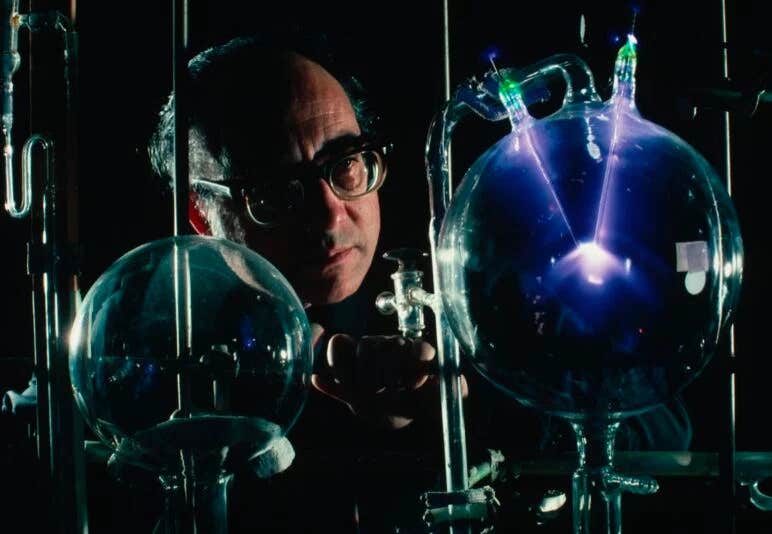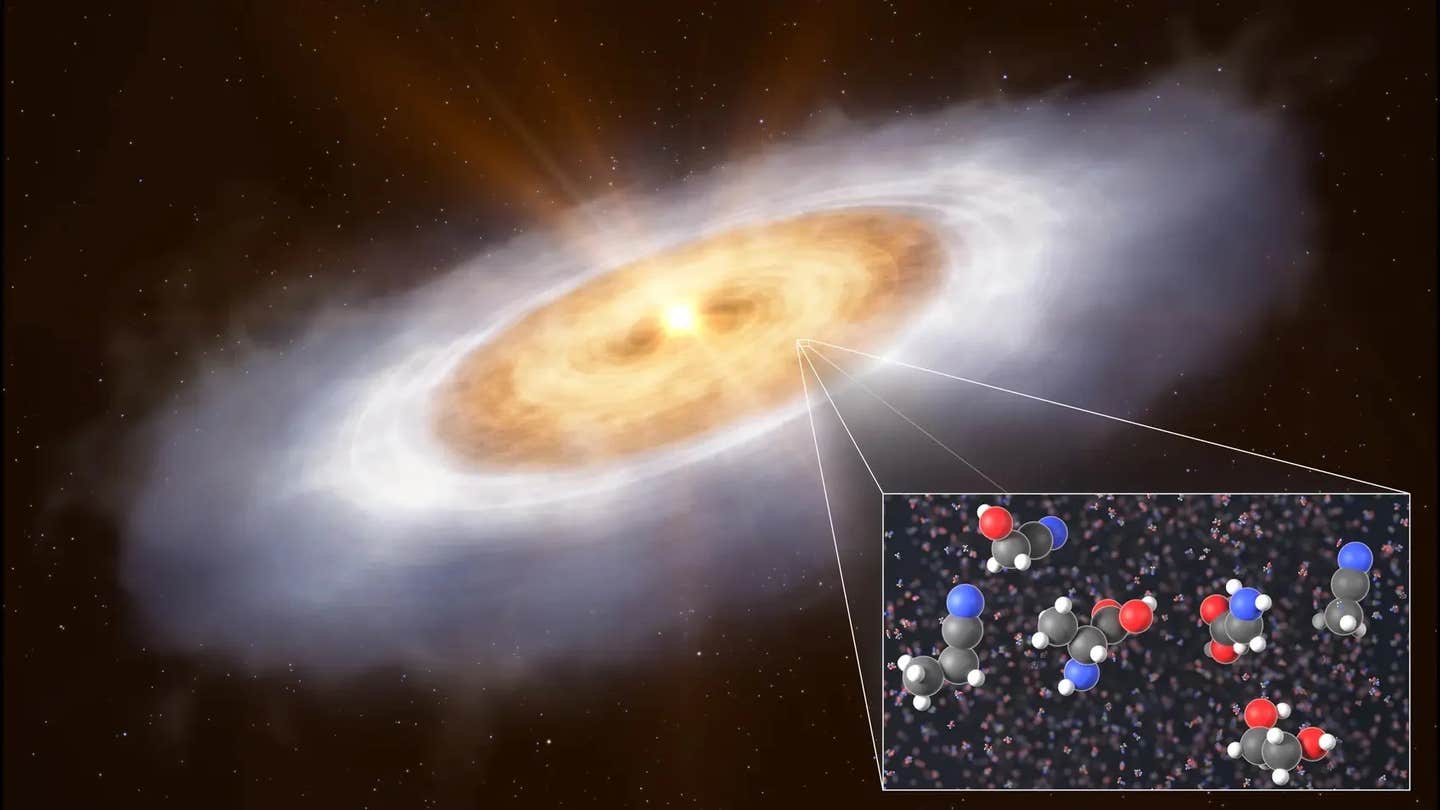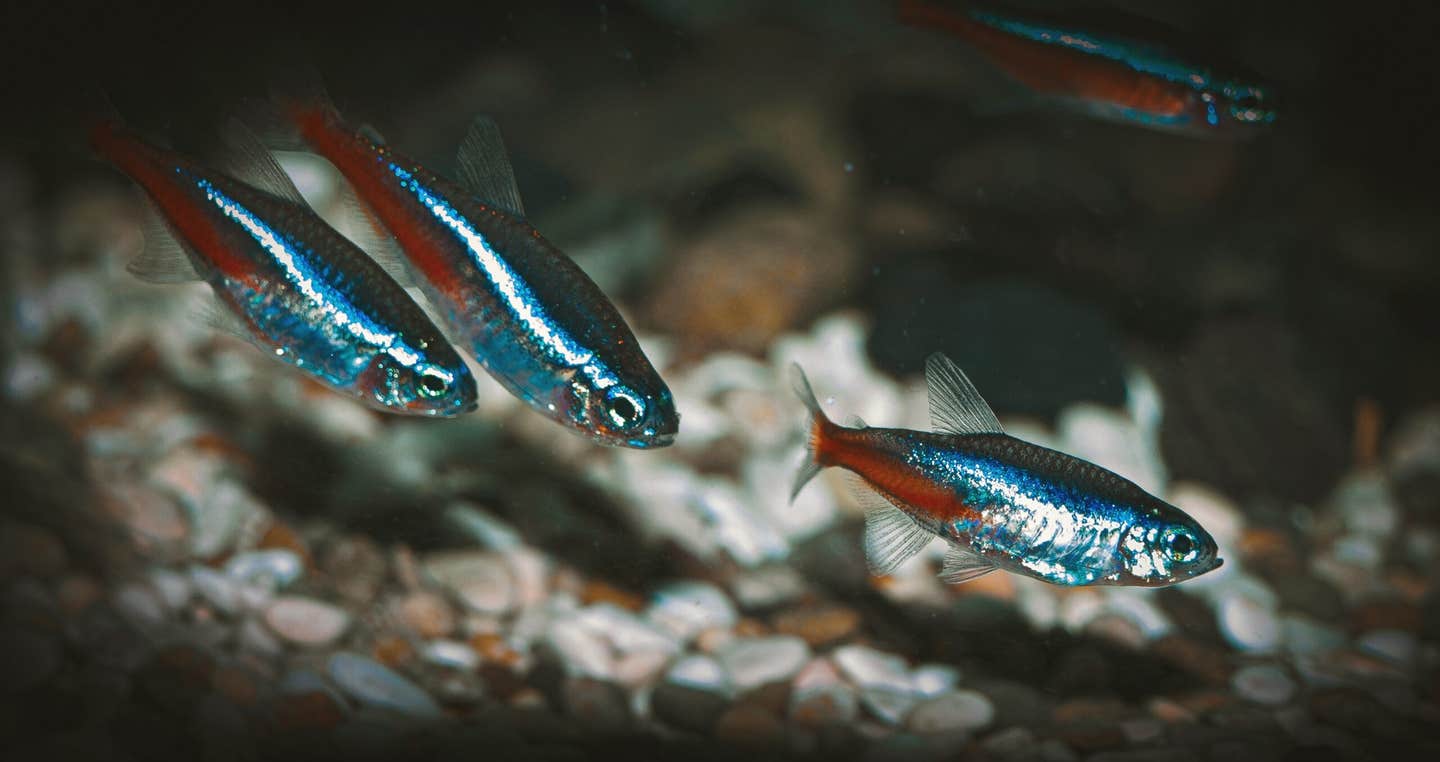Scientists propose incredible new theories for the origin of life in the universe
The universe is a vast and complex entity, with billions of galaxies and approximately 10^24 stars in the observable universe

Stanley Miller with the original laboratory equipment used in the 1952 Miller-Urey Experiment, which gave credence to the idea that organic molecules could have been created by the conditions of the early Earth’s atmosphere. (CREDIT: CC BY-SA 4.0)
The origins of life in the universe have been a topic of scientific inquiry for centuries. Despite significant progress in this field, the precise mechanisms and processes that led to the emergence of life on Earth and elsewhere in the universe remain largely unknown.
We will examine the current theories on the origins of life in the universe and explore the evidence that supports them.
The Universe and the Conditions for Life
The universe is a vast and complex entity, with billions of galaxies and trillions of stars. It is estimated that there are approximately 10^24 stars in the observable universe, and with recent advancements in technology, it is becoming increasingly likely that there are other planets in the universe that could support life. In order to understand the origins of life, we must first examine the conditions that are necessary for life to exist.
The most widely accepted conditions necessary for life are:
Liquid Water - Water is essential for life as we know it, and is believed to be necessary for the chemical reactions that lead to the emergence of life.
A Stable Energy Source - Life requires a stable energy source in order to survive and thrive. This energy can come from a variety of sources, including sunlight or chemical reactions.
Organic Molecules - Organic molecules such as amino acids and nucleotides are the building blocks of life, and are believed to have been present on early Earth.
Related Stories
A Protective Atmosphere - Life requires a protective atmosphere to shield it from harmful radiation and other environmental factors.
Theories on the Origins of Life
There are a variety of theories regarding the origins of life, each with its own strengths and weaknesses. Some of the most widely accepted theories include:
Abiogenesis - Abiogenesis, also known as spontaneous generation, suggests that life arose from non-living matter through a series of chemical reactions.
This theory proposes that the first living organisms emerged from simple organic compounds such as amino acids and nucleotides, which combined to form complex molecules that eventually led to the emergence of life.
The Miller-Urey Experiment - In 1953, Stanley Miller and Harold Urey conducted an experiment to test the idea that the building blocks of life could have emerged spontaneously on early Earth.
The experiment involved simulating the conditions of early Earth in a laboratory setting, and the results showed that amino acids, the building blocks of proteins, could indeed be created under these conditions.
RNA World Hypothesis - The RNA world hypothesis suggests that RNA, not DNA, was the first genetic material to emerge on early Earth. This theory suggests that RNA molecules were able to replicate and evolve, eventually leading to the emergence of life.
Panspermia - Panspermia is the theory that life on Earth was not originated on Earth, but rather was brought to Earth from another planet or celestial body. This theory suggests that life may be present throughout the universe, and may have been transported to other planets through asteroid impacts or other means.
Evidence for the Origins of Life
Despite the lack of definitive proof regarding the origins of life, there is a growing body of evidence that suggests that life may have emerged through natural processes. Some of the most compelling evidence includes:
Fossil Evidence - Fossils of some of the earliest life forms on Earth have been discovered, providing insight into the characteristics of these organisms and the conditions under which they lived.
Molecular Biology - Advances in molecular biology have provided insight into the genetic makeup of living organisms, and have allowed scientists to compare the genetic makeup of different organisms to gain insight into their evolutionary history.
Astrobiology - The study of astrobiology has provided insight into the conditions necessary for life to exist, and has allowed scientists to search for potentially habitable planets in the universe. By examining the properties of other planets and their atmospheres, astrobiologists have been able to identify planets that may have the necessary conditions for life to exist.
Experiments - Experiments such as the Miller-Urey experiment and other laboratory studies have demonstrated that the building blocks of life, such as amino acids, can be created under conditions that are believed to have existed on early Earth.
Challenges and Controversies in the Origins of Life
Despite the progress that has been made in understanding the origins of life, there are still many challenges and controversies in this field. Some of the major challenges include:
The Lack of Direct Evidence - While there is a growing body of evidence that suggests that life may have emerged through natural processes, there is still a lack of direct evidence that definitively proves the origins of life.
The Complexity of Life - Life is an incredibly complex phenomenon, and understanding how it emerged from non-living matter is a difficult challenge that has yet to be fully solved.
The Role of Chance - Some scientists argue that the emergence of life may have been a matter of chance, making it difficult to predict and understand.
The Difficulty of Studying Early Earth - Studying the conditions that existed on early Earth is challenging, as the planet has undergone significant changes over time. This makes it difficult to accurately recreate the conditions that existed when life first emerged.
Future Directions in Origins of Life Research
Despite the challenges and controversies in the origins of life field, there is still much to be learned and discovered. Future research in this field will likely focus on:
Understanding the Emergence of Complex Life - While there is a growing body of evidence that suggests that life may have emerged through natural processes, understanding how it evolved into complex life forms is still a major challenge.
Studying Other Planets - As technology improves, scientists will be able to study other planets in more detail, potentially providing insight into the conditions necessary for life to exist on other planets.
Identifying Potential Habitable Planets - By studying the properties of other planets, scientists will be able to identify planets that may have the necessary conditions for life to exist, potentially leading to the discovery of new forms of life.
Investigating the Role of Chance - Understanding the role of chance in the emergence of life is a major challenge, but future research may shed light on this important issue.
The origins of life in the universe remain a mystery, but the evidence that has been collected to date suggests that life may have emerged through natural processes. While there are still many challenges and controversies in this field, future research will likely lead to new insights and discoveries, potentially shedding light on one of the most fundamental questions in science.
Ultimately, understanding the origins of life may have important implications for our understanding of the universe and our place within it.
Note: Materials provided above by The Brighter Side of News. Content may be edited for style and length.
Like these kind of feel good stories? Get The Brighter Side of News' newsletter.



